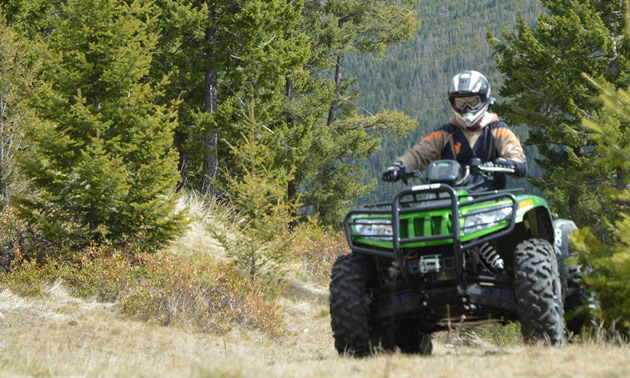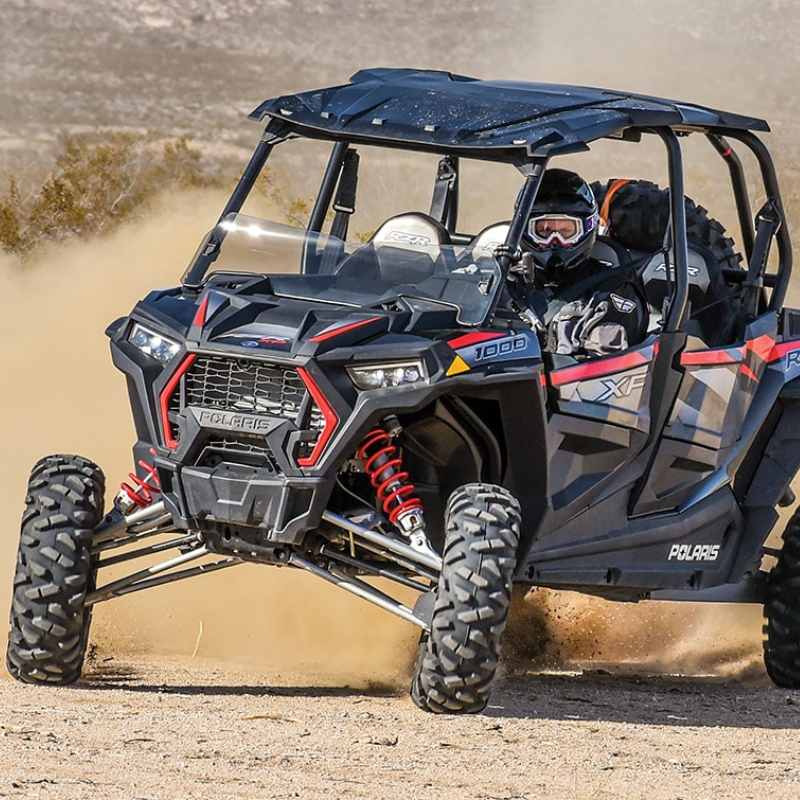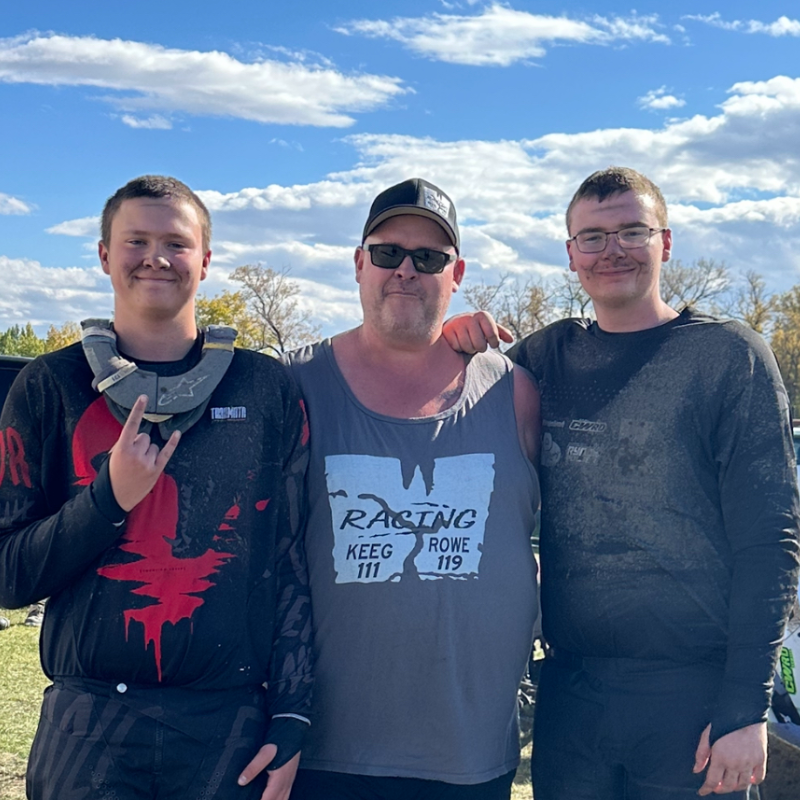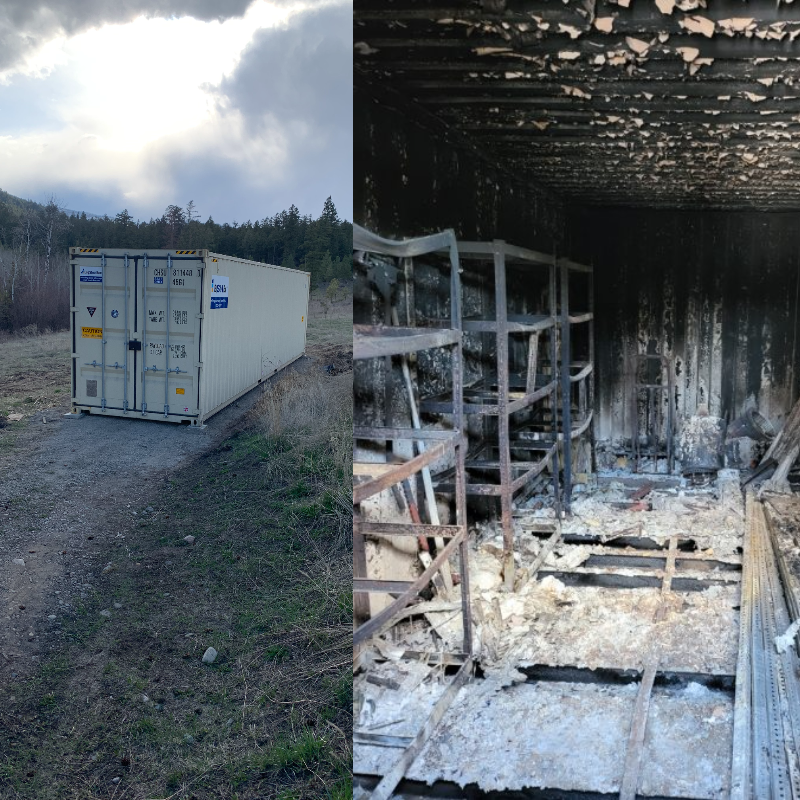There is more to proper ATV safety than riders simply wearing their helmet. The condition of the helmet and its age must be taken into consideration too.
This is reflected in recent changes to Manitoba's off-road vehicle (ORV) helmet standards. The Off-Road Vehicles Act requires a person operating or riding an ORV to wear a helmet that conforms to a variety of helmet standards outlined in the regulations.
ATV riders who recently purchased a helmet in Manitoba have little to worry about regarding the change in legislation. According to the province's Legislative and Regulatory Services, if a person owns a helmet that complies with a standard no longer recognized in Manitoba, they may continue to use it as long as they have proof the helmet was purchased prior to the regulatory change on February 14, 2017.
All-Terrain Vehicle Association of Manitoba (ATVMB) president Armand Brambilla explains that these regulations echo practices promoted by his organization.
"ATVMB recommends that all riders ensure they have their helmet replaced every three to five years," Brambilla said. "We believe it may not be common knowledge, especially to those new to the sport, that helmets do have a lifespan."
The organization even advocates all safety measures be taken for certain ORVs that do not legally require helmets.
"ATVMB also recommends using a helmet even when operating a side-by-side unit that may not require one, due to it being equipped with a ROPS-certified rollcage," Brambilla said.
These views are shared by similar ATV organizations across the country. Under B.C.'s new ORV Act, it's mandatory for riders to wear a DOT-approved safety helmet with a proper rating through CSA or Snell.
All-Terrain Vehicle Association of British Columbia vice-president Ralph Matthews said all proper safety measures should be taken.
"All of our 40 clubs do require that helmets be worn while on a club ride," Matthews said. "ATVBC has always maintained at any of our events you must wear a helmet while riding your ATV or side-by-side."
ATVBC president Moira Jaatteenmaki added that it goes beyond just wearing a helmet, as the safety equipment doesn't have an exact shelf life.
"I don't think you can put a time frame on it, because it depends on how much you ride and what you've been into," Jaatteenmaki said. "The average rider just wearing a helmet when he's out riding, his helmet could last for a long time. But if you drop your helmet on concrete, quite often that will void the integrity of it."
Jaatteenmaki said riders need to treat their helmets as nicely as they would their own head.
"It might not show it, but helmets don't last forever," Jaatteenmaki said. "If you've had a lot of hits on them, then the chances are you aren't going to get the protection that it came with when it was brand new."
She said that helmet policy is the same for all kinds of sports.
"I was involved in skiing for years and if you ran into a tree and banged your helmet on it, it saved your life, but you got rid of the helmet," Jaatteenmaki said. "The integrity is pretty well gone after that."
Above all, Jaatteenmaki believes if riders have any doubt, they should always keep themselves safe.
"If you've had a big crash, you should always err on the side of safety," Jaatteenmaki said. "I know it's a lot of money and everything, but my goodness, it could save your life."
Similar regulations are in place in Saskatchewan. Currently, no helmet law exists in Alberta, unless a municipal bylaw states otherwise.
Proposed legislation in Alberta could force ORV riders to wear a helmet, but that has not been approved by government at this time.
The new off-road vehicle regulations in Manitoba can be viewed on the government's website at http://web2.gov.mb.ca/laws/regs/index.php.
Know the rules: Do you have to wear a helmet on an ATV?
British Columbia: Yes, under B.C.'s new ORV Act, it is mandatory for riders to wear an approved helmet. For more information, check http:www2.gov.bc.ca/gov/content/industry/natural-resource-use/land-use/crown-land/crown-land-uses/off-road-vehicles
Alberta: As of May 15, 2017, Canadian Standards Association-compliant helmets must be worn by OHV users when riding on public land. For more information, check http://www.transportation.alberta.ca/documents/OHVHelmets-FAQ.pdf
Saskatchewan: Yes, ATV riders have to wear a helmet. For more information, check http://www.sgi.sk.ca/individuals/safety/vulnerabilities/safeoperation/atv/index.html
Manitoba: Yes, you have to wear an approved helmet. For more information, check http://web2.gov.mb.ca/laws/regs/index.php








Comments